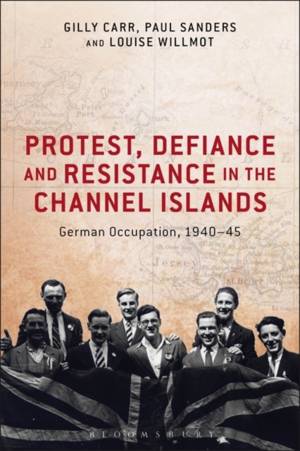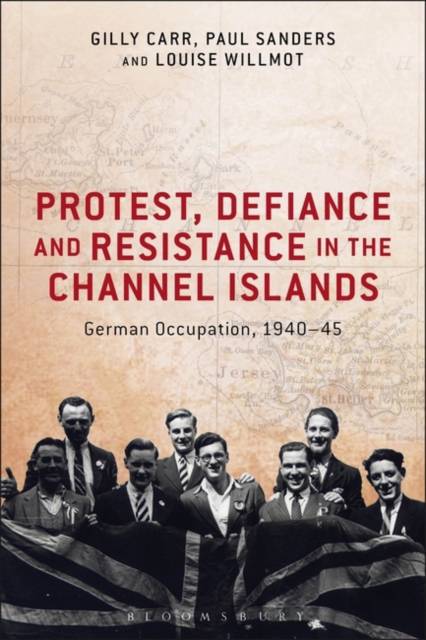
- Afhalen na 1 uur in een winkel met voorraad
- Gratis thuislevering in België vanaf € 30
- Ruim aanbod met 7 miljoen producten
- Afhalen na 1 uur in een winkel met voorraad
- Gratis thuislevering in België vanaf € 30
- Ruim aanbod met 7 miljoen producten
Zoeken
Protest, Defiance and Resistance in the Channel Islands
German Occupation, 1940-45
Gilly Carr, Paul Sanders, Louise Willmot
Paperback | Engels
€ 72,95
+ 145 punten
Uitvoering
Omschrijving
The Nazi occupation of Europe of World War Two is acknowledged as a defining juncture and an important identity-building experience throughout contemporary Europe. Resistance is what 'saves' European societies from an otherwise chequered record of collaboration on the part of their economic, political, cultural and religious elites. Opposition took pride of place as a legitimizing device in the post-war order and has since become an indelible part of the collective consciousness.
Yet there is one exception to this trend among previously occupied territories: the British Channel Islands. Collective identity construction in the islands still relies on the notion of 'orderly and correct relations' with the Germans, while talk of 'resistance' earns raised eyebrows. The general attitude to the many witnesses of conscience who existed in the islands remains ambiguous.
This book conversely and expertly argues that there was in fact resistance against the Germans in the Channel Islands and is the first text to fully explore the complex relationship that existed between the Germans and the people of the only part of the British Isles to experience occupation.
Yet there is one exception to this trend among previously occupied territories: the British Channel Islands. Collective identity construction in the islands still relies on the notion of 'orderly and correct relations' with the Germans, while talk of 'resistance' earns raised eyebrows. The general attitude to the many witnesses of conscience who existed in the islands remains ambiguous.
This book conversely and expertly argues that there was in fact resistance against the Germans in the Channel Islands and is the first text to fully explore the complex relationship that existed between the Germans and the people of the only part of the British Isles to experience occupation.
Specificaties
Betrokkenen
- Auteur(s):
- Uitgeverij:
Inhoud
- Aantal bladzijden:
- 400
- Taal:
- Engels
Eigenschappen
- Productcode (EAN):
- 9781472536242
- Verschijningsdatum:
- 7/05/2015
- Uitvoering:
- Paperback
- Formaat:
- Trade paperback (VS)
- Afmetingen:
- 155 mm x 231 mm
- Gewicht:
- 589 g

Alleen bij Standaard Boekhandel
+ 145 punten op je klantenkaart van Standaard Boekhandel
Beoordelingen
We publiceren alleen reviews die voldoen aan de voorwaarden voor reviews. Bekijk onze voorwaarden voor reviews.








